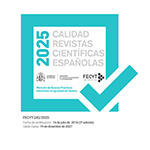Paro, pobreza, estado y familia en España, 1993
Resumen
This paper is devoted to the study of the economic consequences of unemployment. We try to quantify the role played by the State, the household and the family in its remedy. Against the extended belief that unemployment is a phenomenon that hits mainly individuals, here we stress the idea of its “domestic” nature. We first take the point of view of the individual and estimate the contributions of the State, the household and the extended family to the individual income of the jobless. The family contributes little, and the State less than the household, although better targeted against poverty. From a domestic perspective, most of the disposable income of the jobless comes from the work of other household members and most of the rest from public transfers to other household members. All together, in 1993 unemployment was in Spain a minor cause of poverty, having raised its level from 19% to 23% of the working age population. Our results also give a negligible role to non-domestic kinship and suggest that the role of the household as a buffer for social conflicts has been at least exaggerated.Descargas
##plugins.generic.pfl.publicationFactsTitle##
##plugins.generic.pfl.reviewerProfiles## N/D
##plugins.generic.pfl.authorStatements##
Indexado: {$indexList}
-
##plugins.generic.pfl.indexedList##
- ##plugins.generic.pfl.academicSociety##
- N/D
- Editora:
- Ediciones Complutense
Descarga artículo
Licencia
La revista Cuadernos de Relaciones Laborales, para fomentar el intercambio global del conocimiento, facilita el acceso sin restricciones a sus contenidos desde el momento de su publicación en la presente edición electrónica, y por eso es una revista de acceso abierto. Los originales publicados en esta revista son propiedad de la Universidad Complutense de Madrid y es obligatorio citar su procedencia en cualquier reproducción total o parcial. Todos los contenidos se distribuyen bajo una licencia de uso y distribución Creative Commons Reconocimiento 4.0 (CC BY 4.0). Esta circunstancia ha de hacerse constar expresamente de esta forma cuando sea necesario. Puede consultar la versión informativa y el texto legal de la licencia.











